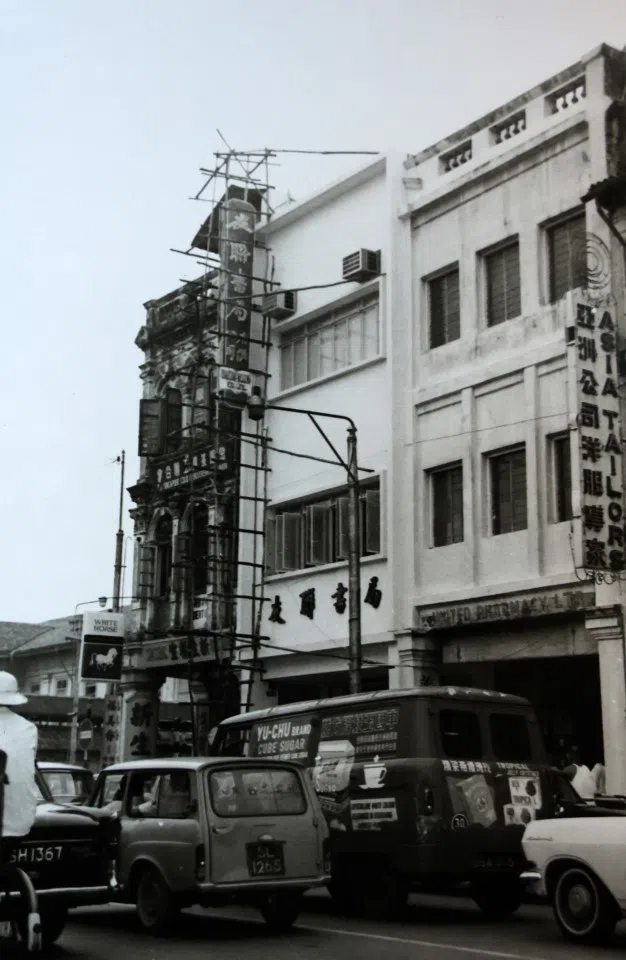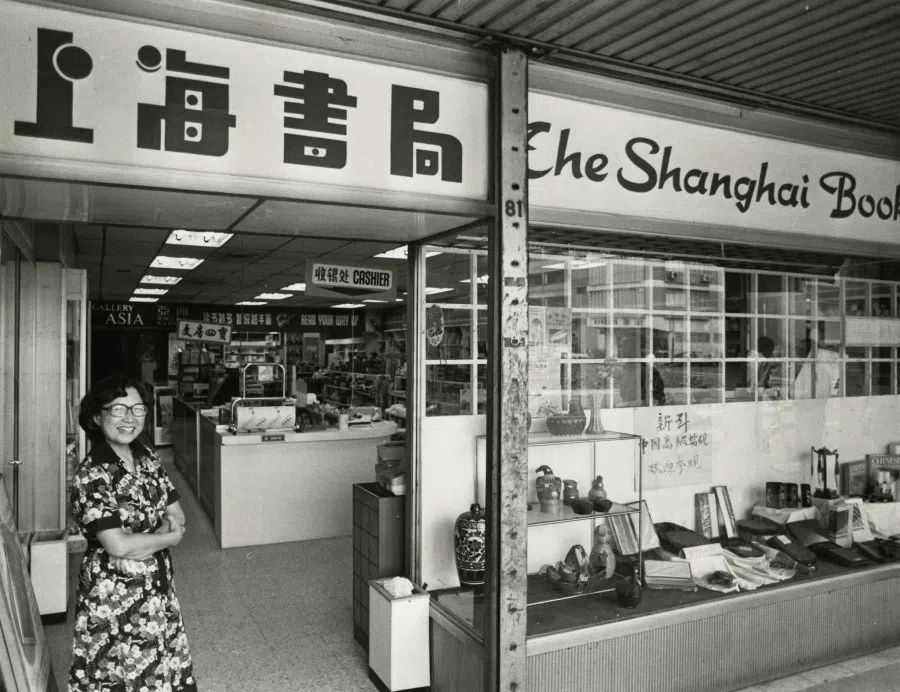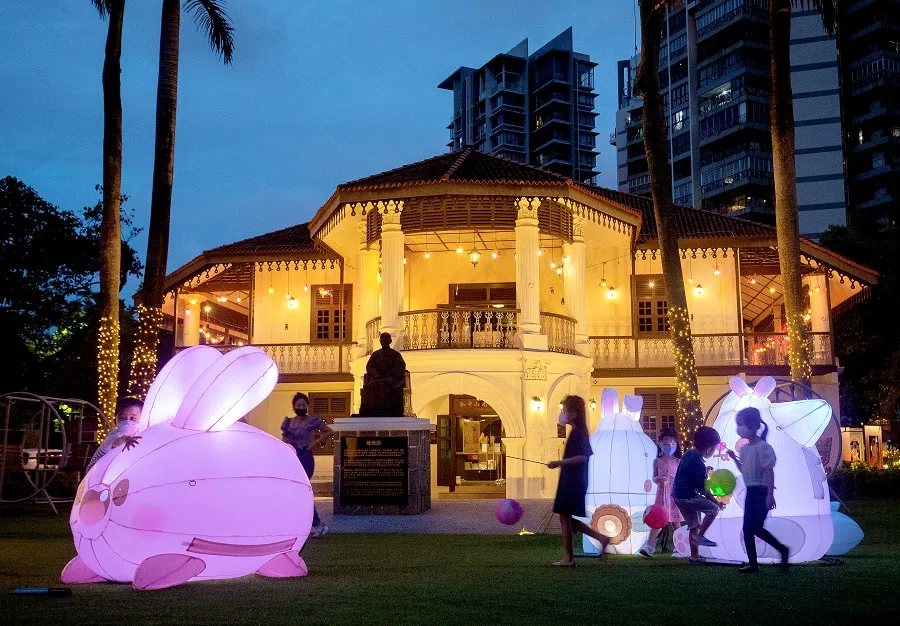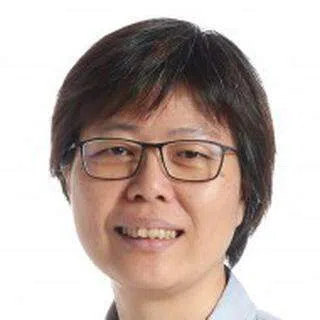Challenges of Singapore's Chinese community amid competing influences: Lessons from an old bookstore
Looking back on the history of Union Book Co, one of Singapore's oldest Chinese language bookstores, editor-in-chief of the Chinese Media Group Lee Huay Leng muses that Singapore has always been a crossroads of different cultures and thinking. Even today, the challenge is to remain open yet stay vigilant against competing influences. Responding with Singapore's national interest at heart is the mark of a nation's confidence.

To mark its 70th anniversary, Union Book Co (You Lian Shu Ju, 友联书局) launched Looking Back (《回望》), a commemorative book at the Singapore Book Fair in June. One of the essays in the book, "Downward Roots, Upward Growth - Looking Back at 70 Years of Union Book Co", gained much attention. With her research, writer Zhong Hongzhi traced the Hong Kong roots of Singapore's Union Book Co. As historical information on Singapore's Union Book Co is scarce, Zhong's findings are of academic significance and relevance to diverse social thought in Singapore.

According to Zhong's essay, Hong Kong Union Press was established in 1949 by a group of intellectuals who had moved to Hong Kong from mainland China. Their basic tenets were "political democracy, economic equality and social freedom", and they were funded by The Asia Foundation in the US. The group included a publishing arm, a research arm and a translation/editing arm.
Book publishers and the role they play
Union entered Singapore in 1952, mainly distributing The Chinese Student Weekly (Zhongguo Xuesheng Zhoubao,《中国学生周报》), the flagship publication of their Hong Kong mothership. In 1956, the group set up a branch in Singapore, sending a management team from Hong Kong. Subsequently, a few founding members of the Hong Kong Union Press congregated in Singapore. A Union Press veteran, Wang Jianwu, told Zhong that after he graduated from New Asia College in 1955, he was sent to the Singapore/Malaya region to set up a theatre group - Union's I-Lien Drama Society was born in 1957.

In 1954, Yu Tak-Foon, editor-in-chief of The Chinese Student Weekly, came to Singapore, removing "Zhongguo" from the title of the publication to make it The Student Weekly (Xuesheng Zhoubao,《学生周报》), in line with the political situation in the Singapore/Malaya region. The team also set up bases in cities in the region to recruit secondary school students and set up student groups as fringe organisations for the Union Press to nurture literary and artistic talents.
Apart from The Student Weekly, Union also had The Children's Paradise, published in Hong Kong, which it distributed in the Singapore/Malaya region; Chao Foon (蕉风), a literary magazine founded in Singapore; and Union's literary selections (《友联活叶文选》) that Singaporean cultural practitioner Chew Wee Kai also wrote about recently in his column for Zaobao. The Student Weekly and The Children's Paradise were very popular in their time, while the literary magazines became a collective memory among the literati.
The story of Union prompted me to dig up my copy of the 80th anniversary commemorative book of Shanghai Book Company, a gift from owner Chen Mong Tse over ten years ago. His father Chen Yoh Shoo and uncle Wang Shu Yang founded the bookstore in 1925 - it was one of the "Big Five" among Singapore's Chinese bookstores, along with Sin Chew Book Store, Chung Hwa Book Company, World Book Company and The Nanyang Book Co.
In 1940, future Chinese Premier Zhou Enlai sent Hu Yuzhi to Singapore to be the editorial chief of the Nanyang Siang Pau, during which there were exchanges with the Shanghai Book Company.
Singapore has always been an arena of competing ideologies, a land that has witnessed the constant collision of different cultures and thinking.

According to Wang Shu Yang's son, Wang Li Ren (王立人), in late 1940, Hu Yuzhi suggested that Shanghai Book Company send someone to Hong Kong and "work with Hua Shang Daily and the Hong Kong cultural sector to publish and distribute progressive publications".
Hu later returned to China and became editor-in-chief of Guangming Daily, an official newspaper of the Chinese Communist Party (CCP), as well as vice-minister for culture, vice-chairman of the Standing Committee of the Chinese National People's Congress, and vice-chairperson of the Chinese People's Political Consultative Conference.
In 1970, Shanghai Book Company co-founder Chen Yoh Shoo was invited to watch China's National Day celebrations from atop Tiananmen, much to his excitement.
Singapore at the crossroads of different cultures and thinking
Flipping through the history of Union Book Co and the Shanghai Book Company, I could not help but think about how Singapore has always been an arena of competing ideologies, a land that has witnessed the constant collision of different cultures and thinking.
Singapore historian Lee Guan Kin says in her monograph The Clash of Eastern and Western Cultures and the Response of Three Intellectuals in Singapore: A Comparative Study of Khoo Seok Wan, Lim Boon Keng and Song Ong Siang (《东西文化的撞击与新华知识分子的三种回应--邱菽园、林文庆、宋旺相》) that there was a power struggle between British and Qing forces, and between royalists and revolutionaries in late 19th century Singapore.
It is also common knowledge that after the Qing dynasty was overthrown, the Chinese in Singapore who followed current affairs in China closely were wooed by both the Kuomintang and the CCP. After the Second World War, there were also battles between the pro- and anti-communists. The Thien Nan Shin Pao (《天南新报》), the Sun Yat Sen Nanyang Memorial Hall and the United Chinese Library (同德书报社) are all remnants of this era of history.
... the happenings in Singapore are a "dot" that can often be linked with other "dots" in other cities, forming connections. This was, and still is the case.

Two points are worth noting from the above. One, Singapore has always been swept up in the turbulent annals of history: in the Chinese cultural and economic realms, at different junctures of history, it has always had close contact with the mainland, Hong Kong, Taiwan and overseas Chinese elsewhere. Even in the political sphere, it was not a mere bystander. When we study certain historical events or phenomena in Singapore, we'll find that the happenings in Singapore are a "dot" that can often be linked with other "dots" in other cities, forming connections. This was, and still is the case. What has changed are the forms of participation that have evolved over time and circumstances. Such participation enriches Singapore's history and historical studies.
... all forces, left or right, are promoting their ideas and playing a role in the local community in an organised and systematic way.
Two, most studies on Singapore's Chinese community in the 1950s and 1960s focus on the infiltration and influence of left-wing forces in Chinese-medium schools, trade unions, bookstores and so on. While there were also articles about the infiltration of rightist ideology at the time, Zhong's study on Union Book presents an example that reminds us that, all forces, left or right, are promoting their ideas and playing a role in the local community in an organised and systematic way.
Singapore's Chinese community faces influence from different forces
The stories of Chinese bookstores unfolded in the last century before Singapore gained independence. However, competition among different forces has never ceased. Today, amid China's rise and its competition with the Western democratic camp, the outside world is watching how Singapore, with its high population of Chinese and close economic ties with China, will be affected.
Some time ago, a new Taiwanese think tank published a research report naming all of Singapore's Chinese business associations, Chinese-language media and prominent figures with contacts with China and who influence public opinion. According to a Pew Research Center survey published in late June 2021, Singapore is the only country among most advanced economies surveyed that holds favourable views of China. Late last year, a French think tank with a military background also published a report on China's influence.
... we should not allow ourselves to be used as an ideological battleground for others or allow them to breed mutual suspicion between ethnic groups and communities.

Knowing history and in the face of reality, I often think about how Singapore should respond to these competing ideologies and opinions. These reports and concerns are not only timely reminders, but may also be part of the competition. While they should be taken seriously, we should not allow ourselves to be used as an ideological battleground for others or allow them to breed mutual suspicion between ethnic groups and communities.
Singapore has not been independent for a long time - just nearly 60 years. But Singapore's national consciousness and national identity have been strengthening and are already different from the colonial era. Learning from history, amid today's increasingly complex external reality, we should remain calm under pressure and continue to stay open. At the same time, we should stay vigilant against various information sources trying to influence us and respond with Singapore's national interest at heart. This is also a mark of Singapore's confidence. Related: How the Shanghai Book Company enlivened Singapore's cultural scene | Chinese bookshops in Singapore: Art salons of the 1970s and 1980s | Trees in a forest: Becoming Chinese Singaporean in multicultural Singapore





